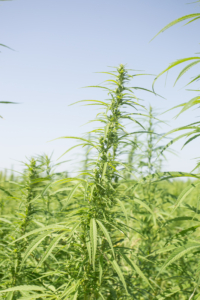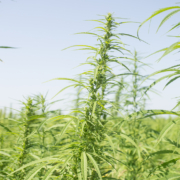How Can Florida Hemp Businesses Remain Viable Under Restrictive New Hemp Legislation?
 Florida’s hemp industry could soon change drastically under new legislation which poses an enormous threat to businesses selling hemp products in the state. Despite significant pushback from industry stakeholders, the Florida Legislature recently approved a bill to regulate hemp-derived products and altogether eliminate delta-8 THC products–some of the most popular products sold by hemp retailers in recent years. Senate Bill 1698, which has been sent to Governor Ron DeSantis’ desk for signature, provides that the amount of THC in hemp-derived products cannot exceed 5 milligrams per serving or 50 milligrams per container, and it completely bans the sale of products containing delta-8 THC, in addition to certain other cannabinoids, including delta-10 THC, THCV, and THCP. If Governor DeSantis signs the bill into law, which is likely, then delta-8 THC and other cannabinoids will become illegal in the state beginning on October 1st, obviously putting Florida hemp businesses at risk.
Florida’s hemp industry could soon change drastically under new legislation which poses an enormous threat to businesses selling hemp products in the state. Despite significant pushback from industry stakeholders, the Florida Legislature recently approved a bill to regulate hemp-derived products and altogether eliminate delta-8 THC products–some of the most popular products sold by hemp retailers in recent years. Senate Bill 1698, which has been sent to Governor Ron DeSantis’ desk for signature, provides that the amount of THC in hemp-derived products cannot exceed 5 milligrams per serving or 50 milligrams per container, and it completely bans the sale of products containing delta-8 THC, in addition to certain other cannabinoids, including delta-10 THC, THCV, and THCP. If Governor DeSantis signs the bill into law, which is likely, then delta-8 THC and other cannabinoids will become illegal in the state beginning on October 1st, obviously putting Florida hemp businesses at risk.
The impact of SB 1698 cannot go unstated, as it poses a significant threat to Florida hemp cultivators, manufacturers, and retailers, by imposing strict THC limits on hemp products and limiting the types of products hemp businesses can legally make and sell (including those products which have been the most popular amongst consumers in the past several years) and by, in turn, likely also diminishing consumer interest altogether. Many Florida hemp businesses have built their business models around product offerings containing higher levels of THC and delta-8 THC; however, under the new regulations, these businesses will ultimately have to reformulate their products or change their business models to comply with the new regulations.
Florida hemp businesses could have a lifeline in the form of strategic partnerships with marijuana businesses, especially as the following two significant events are about to occur in the state: (1) 22 additional medical marijuana treatment center (MMTC) licenses are expected to be awarded by the Florida Department of Health as soon as April; and (2) an adult-use legalization initiative is expected to be on the ballot in November, with a vote approving the initiative also expected. Many of the newly-licensed MMTCs may lack the infrastructure necessary to scale their operations quickly, especially considering the anticipated demand surge that would result from adult-use legalization. This is where hemp businesses come in. Hemp cultivators, manufacturers, and retailers already possess established infrastructure and expertise in various aspects of the cannabis industry, which they may leverage into mutually beneficial partnerships with marijuana businesses. The forthcoming issuance of 22 new MMTC licenses coupled with the potential legalization of adult-use marijuana presents a unique opportunity for collaboration. To capitalize on this opportunity, Florida hemp businesses should begin actively seeking out potential partnerships.
This would be a win-win for Florida hemp businesses and marijuana businesses alike. By entering into partnerships with established hemp companies, marijuana license holders could use the hemp companies’ existing infrastructure and expertise to scale their own operations and capitalize on an emerging adult-use market. For example, hemp cultivators could offer cultivation facilities and expertise in growing cannabis plants, while hemp manufacturers could provide machinery and formulation know-how for developing diverse product lines. Additionally, hemp retailers could provide physical locations for retail stores and offer distribution channels and consumer insights. Meanwhile, Florida hemp businesses will have come up with a creative solution to keep them in business amidst significant regulatory obstacles.
Although Florida’s new hemp bill, with its limitations on THC levels and outright ban of certain cannabinoids, including the immensely popular delta-8 THC, undoubtedly presents a serious challenge to the sustainability of hemp businesses in the state, opportunities exist for strategic partnerships with marijuana businesses. Florida hemp businesses may leverage their existing infrastructure and expertise and help play a key role in the quick scaling of marijuana operations, particularly in anticipation of the award of new MMTC licenses and the potential legalization of adult-use marijuana. By embracing strategic partnerships with marijuana businesses, Florida hemp businesses may not only survive but also thrive.


